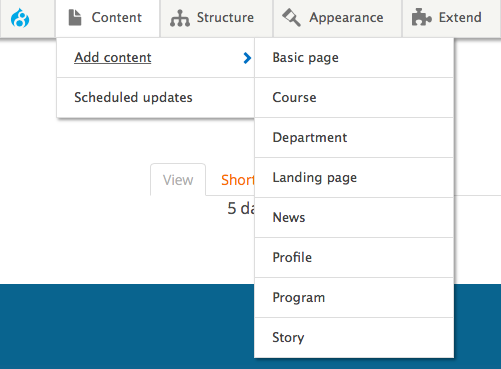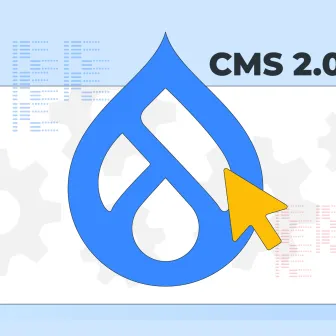Higher educational institutions and schools strive to host cost-effective network infrastructures and websites to support today's news outlet fashion. Most of an institution’s processes are now conducted online, such as attendance, notices, announcements, calendar events, declaring results, and much more. Having a profound online presence and maintaining required communication.
What is OpenEDU?
OpenEDUis a pre-configured Drupal 8 implementation that is specifically built for higher education institutions. It enables universities to accelerate the development of sites by providing required features by default. It leverages the capability of Drupal called hierarchical distributions. An advantage of hierarchical distributions is that it enables organizations to customize Drupal for specific industries by simplifying the building and maintenance of distributions.
Who uses OpenEDU?
Universities and institutions have dramatically adopted Drupal in the recent past, especially after the rollout of OpenEDU distribution. Some instances are:
- University of Colorado
- University of Minnesota
- University of Surrey
- Dartmouth
- University of Chicago
- Stanford University
- Oxford University and many more.
Why Open? Features.
News
A distinct news page is provided to feature news related to the educational institute. The news page supports categorization with the help of tags.
Homepage
There is an inbuilt integration of a hero banner on the homepage. Plus, grid Blocks are also mentioned to provide the content in the block format.
Responsiveness
Websites built on OpenEDU are inherently responsive. Most of the elements can further be re-configured as per the requirements of stakeholders.
Department page
Various departments of institutes can be featured and interlinked with staff and member profiles for better identification.
Course Page
Courses offered at the university can be showcased and interlinked to faculty profiles on the website. Courses can also be attached to programmes and displayed in a grid pattern. Further formatting can be done to make the structure more readable.
Programmes
The institute can enlist offered programs. The content type for programmes page can comprise Courses, stories, faculty, and staff for an in-depth look at the respective programmes.
Content workflow and governance
In addition to preconfigured content types, improved content workflows and governance capabilities enable individuals to interact and administer their website.
Newsletters
Universities can allow visitors and enrolled students to subscribe to important newsletters and updates.
Social Media Integration
Out-of-the-box social media integrations enable governments to provide a link to their social media handles right away from the website.

In a nutshell
-
It is cost friendly and saves the usual development time.
-
Readies a website with pre-built components that accelerate development,
-
It is for conducting numerous activities/tasks in time and with due efficiency. For example, making announcements, event declaration, campus news, declare results and much more.
-
It provides a user experience that aligns with higher-education organizations’ key needs, such as audience-driven menus, campus directories, and a program page structure tailored to key audiences
Higher education institutions may find it easy to decide but depend on their current website’s dynamics and complexity depends. Opensense Labs has always been keen towards finding the appropriate solution for clients and prospects in general. We would love to hear your concerns out as well at [email protected].
Subscribe
Related Blogs
Drupal's Role as an MCP Server: A Practical Guide for Developers

"The MCP provides a universal open standard that allows AI models to access real-world data sources securely without custom…
What’s New in Drupal CMS 2.0: A Complete Overview

"Drupal CMS 2.0 marks a significant change in the construction of Drupal websites, integrating visual site building, AI…
Drupal AI Ecosystem Part 6: ECA Module & Its Integration with AI

Modern Drupal sites demand automation, consistency, and predictable workflows. With Drupal’s ECA module, these capabilities…




